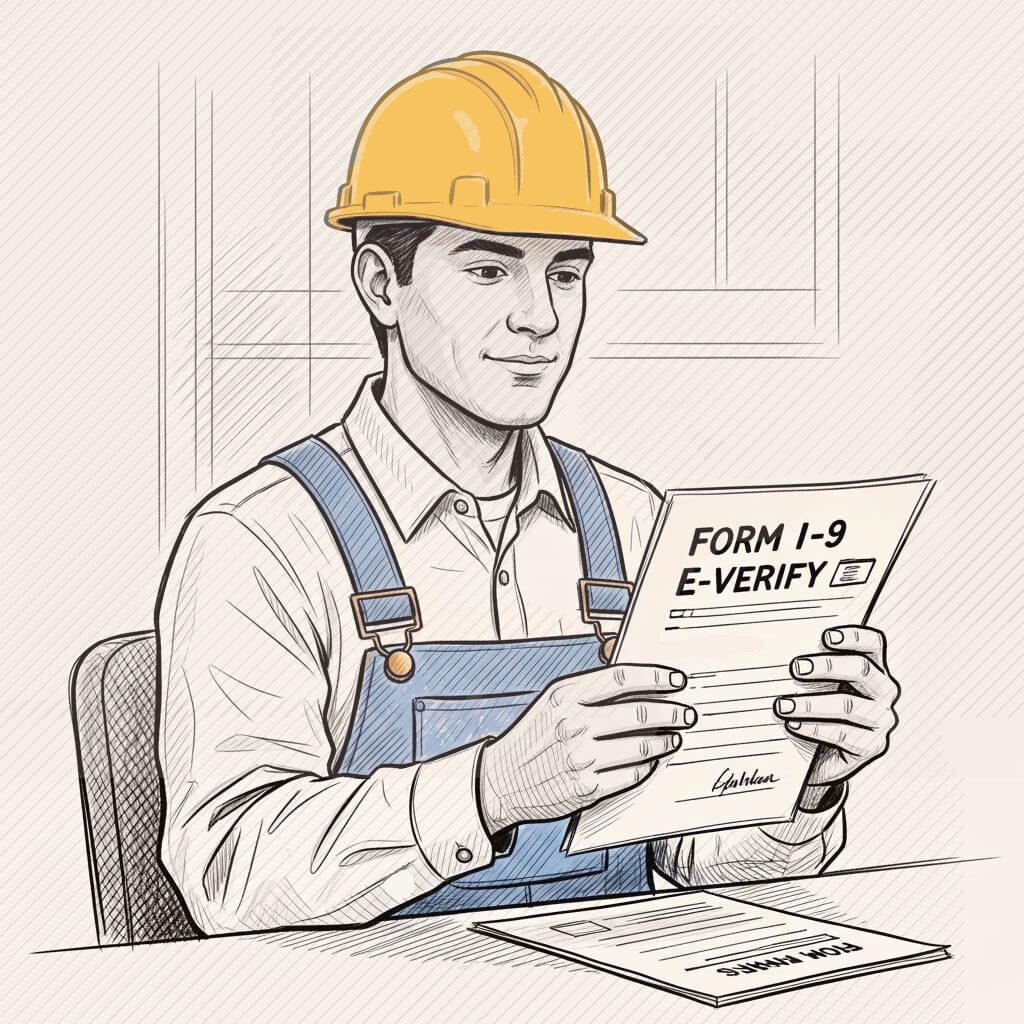In Florida construction law, few documents are as important or as frequently misunderstood as the Notice of Commencement (NOC). For general contractors, subcontractors, material suppliers, and property owners, handling a Notice of Commencement correctly is essential to preserving lien rights and preventing costly disputes.
Mistakes involving NOCs are common. They can result in lost payment rights, lien challenges, and serious delays. This article outlines 20 essential facts that every Florida construction professional should know about Notices of Commencement.
What Is a Florida Notice of Commencement (NOC)?
A Notice of Commencement is a recorded document that marks the official beginning of a construction project. It includes important details about the project, the property, the owner, the contractor, and any lenders involved. Recording an NOC helps ensure proper notice is given and payment rights are preserved.
The 20 Critical Facts You Must Know About Florida NOCs:
1. NOC Required for Improvements Exceeding $2,500 (or $7,500 for HVAC)
Under Florida Statute § 713.13, an NOC is a mandatory prerequisite for any construction improvement where the direct contract value surpasses $2,500. For HVAC repair or replacement work, this threshold is $7,500. Initiating work without a required, valid NOC can jeopardize lien rights for all parties down the chain.
2. Must Be Recorded with the Clerk of Court Pre-Work
The NOC must be recorded with the Clerk of Court in the county where the property is located before any work commences on the site or before the first inspection. Failure to record it correctly invalidates the NOC and can significantly impact lien rights.
3. One-Year Expiration Unless Stated Otherwise
By default, a Florida NOC is valid for one year from its recording date. If a project extends beyond this period, the owner must record an amended NOC to extend its validity. An expired NOC can compromise payment protections and lien rights for all involved parties.
4. Lien Priority “Relates Back” to the NOC Recording Date
Florida Statute § 713.07(2) dictates that all properly filed construction liens on a project share the same priority date: the original recording date of the NOC. This “relation back” rule is crucial in determining how payment disputes are resolved, especially in cases involving multiple lienholders, lenders, or other creditors.
5. The NOC Dictates Notice to Owner (NTO) Timelines
For subcontractors and material suppliers, the NOC’s recorded date is paramount for calculating the 45-day window to serve a Notice to Owner (NTO) after first furnishing labor, services, or materials to the job site. A late or improperly recorded NOC can lead to critical miscalculations and the loss of invaluable lien rights.
6. Owner’s Duty to Post a Certified Copy On-Site
Florida law mandates that the owner (or the owner’s authorized agent) must post a certified copy of the recorded NOC at the job site. This ensures transparency and provides subcontractors and suppliers with the necessary information (like the legal description and owner’s contact) to properly serve their NTOs. A missing or intentionally hidden NOC can give rise to defenses in lien enforcement cases.
7. Incorrect Legal Description Invalidates the NOC
One of the most frequent owner errors is providing an inaccurate legal description of the property. The legal description on the NOC must precisely match the deed, not just the street address or parcel ID. Any discrepancy can render the NOC invalid, putting all lien rights at risk.
8. Owner (or Authorized Agent) Must Sign the NOC, Not the Contractor
The NOC must be executed by the property owner or their explicitly authorized agent in writing. A general contractor cannot sign the NOC unless they have specific written authorization from the owner. Improper execution can void the entire document.
9. Errors Can Be Amended with an Amended NOC (But No Timeline Reset)
While it’s best to get it right the first time, minor errors (like changing the general contractor, extending the expiration date, or correcting a typographical mistake) can often be fixed by recording an “Amended Notice of Commencement”. However, it’s crucial to understand that recording an amendment does not reset the original lien timeline established by the initial NOC.
10. The NOC Solidifies the “First Furnishing” Date for Lien Purposes
The timeline for establishing lien rights isn’t solely based on when a contractor first arrives or materials are delivered. It’s intrinsically linked to the recorded NOC date, which serves as the official start of the project for lien calculation purposes.
11. Lenders Often Require a Recorded NOC Before Releasing Draws
Construction lenders frequently mandate a properly recorded NOC as a condition for releasing funds for project draws or upon inspection milestones. This practice helps lenders confirm that essential lien protections are in place, mitigating their own financial risk.
12. NOC Recording Date is Paramount for Lien Priority Disputes
In scenarios where multiple parties claim a right to payment from a project, the recording date of the NOC is the definitive factor in determining lien priority. This means the NOC date, not the date a specific lien is filed, dictates who gets paid first among competing interests (e.g., between lienors and lenders, or among different subcontractors).
13. On-Site Posting is Legally Required, But Often Overlooked
Despite being a legal requirement, the physical posting of the NOC at the job site is frequently neglected. This oversight can severely prejudice the rights of subcontractors and suppliers who rely on this public posting to obtain the information needed to serve their NTOs. Such a failure can lead to equitable defenses in lien enforcement actions.
14. A Notice of Termination Can Shorten Lien Rights Significantly
If an owner records a “Notice of Termination of Notice of Commencement” and properly serves it to all parties, the usual 90-day period to file a lien is dramatically shortened. Lienors then have only 30 days from the effective date of the Notice of Termination to record their Claim of Lien. This is a critical trap for the unwary.
15. Emergency Repairs are Generally Exempt (But Narrowly Defined)
For genuine emergencies, such as a burst water pipe, sudden structural collapse, or other immediate hazards requiring urgent repair to prevent further damage or protect public safety, a Notice of Commencement is generally not required. However, this exception is very narrow and should not be relied upon for routine or non-urgent repairs.
16. Service Contracts Over $2,500 (e.g., Electrical, HVAC, Plumbing) Still Need an NOC
Even if a project doesn’t involve major structural work, service-based improvements like new electrical panels, HVAC unit replacements, or full plumbing re-pipes typically require an NOC if the contract value exceeds the statutory threshold of $2,500 (or $7,500 for HVAC-specific work).
17. Contractors Cannot File a Lien Until a Valid NOC (If Required) is Recorded
It’s impossible to “shortcut” the process. If an NOC is legally required for a project, a Claim of Lien filed before the proper recording of that NOC may be deemed premature and unenforceable. This underscores the importance of verifying the NOC’s presence and validity early in a project.
18. Common Owner Errors: Wrong Contractor, Missing Parcel Info, PO Boxes
Clerical errors on NOCs are a frequent source of disputes over lien validity. Common mistakes include listing an incorrect general contractor, omitting crucial parcel identification information, or using a Post Office Box instead of a physical address for service of process. These seemingly minor details can have major legal ramifications.
19. Misidentifying the Property Owner Can Derail Lien Rights
Accurately identifying the legal titleholder of the property is paramount. If the property is owned by an LLC, trust, or other legal entity, the NOC must precisely list that entity as the owner, not merely the individual managing the project. Incorrect owner identification can directly derail lien rights.
20. The NOC: A Double-Edged Sword for All Parties
When diligently and correctly handled, the Florida Notice of Commencement serves as a powerful tool that clarifies responsibilities, protects payment rights for contractors, subcontractors, and suppliers, and provides transparency for owners. However, when mishandled – whether through incorrect information, failure to post, or allowing it to expire – the NOC transforms into a costly legal trap that can jeopardize a contractor’s lien rights or expose an owner to the risk of double payment.
Final Thoughts on Florida NOC Compliance
In the complex landscape of Florida construction law, a properly executed and managed Notice of Commencement isn’t just a document; it’s the foundational pillar for securing lien rights and payment protections. For every draw issued, every Notice to Owner served, and every lien filed, the NOC critically controls the project’s legal timeline and priorities. Overlooking its importance or making common missteps can be profoundly costly.
If you’re unsure about whether your project needs a Notice of Commencement, how to fill one out, or whether a lien is valid, consider connecting with a qualified Florida construction law attorney. Proactive legal insight can help both owners and contractors navigate these complexities effectively – long before disputes escalate to costly litigation.
About the Author
John Martin, Esq., is an attorney at The Schatt Law Firm, PLLC, where he focuses on business and construction litigation.



